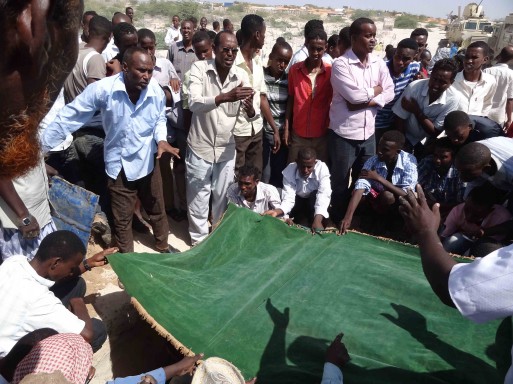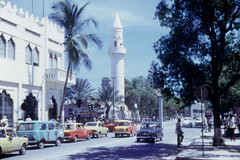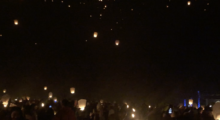In Somalia, a small country on the eastern coast of Africa, the people follow specific protocol after a loved one has died to ensure they pass on to the afterlife. The first step is to bury the loved one’s body on the same day that they have died. Family members read passages from the Quran to encourage the spirit to leave the body.
While the verses are read, another family member prepares the body by straightening the limbs and closing the eyes and mouth. If the loved one is female, the hands of female family members wash the body with a warm cloth; vice versa if the loved one is male. While people in Somalia don’t apply make-up to their dead loved ones (which is kind of an odd American custom now that I think about it), they do mist a traditional perfume called Adar.
Family members then wrap the body securely with white cotton clothes from head to toe. Additional prayers are chanted as the loved one is washed and prepared for burial. Once they complete the initial phase, the people of Somalia take their dead loved ones to a mosque for a service that combines prayers with a special good-bye ritual called Janaaso. After the service ends, they cover the body with a green cloth embroidered with
gold. An opening is left in the cloth for the face to have direct contact with the earth in what is otherwise a rich, extravagant fabric. The body then goes directly into the ground without a casket or any other coverings. Family members cover the body in layers of different natural elements including grass, leaves, sawdust, soil and wood. In Somalia, they uphold the belief that if a person lived a full life, there is no need to spend a lot of money on elaborate funeral ceremonies — a belief that might do some good for Westerners who practice the opposite to their own detriment.
Once the funeral rituals are complete, family members feel at peace knowing their loved one has moved on to the afterlife. They rest assured that Allah controls both life and death and accept that death can happen at any moment. In Somalia, few cities complete paperwork acknowledging the death of a loved one, but when they do, they almost always cite the cause of death as “God’s will.” By contrasting sacredness with humility and respect for the natural order of things, death rituals in Somalia are unique to say the least. Once again, it seems as though there is still much to be learned about life and death from different cultures around the world.
Related Articles:
- Taking the Time to Say Goodbye: Vietnamese Funeral Customs
- Buddhism and the Eastern Middle Ground
- Famadihana: The Malagasy Perspective on Death and Burial

 Death Rituals in Somalia
Death Rituals in Somalia





 Losing Her Constant
Losing Her Constant
 Sky Lanterns Bear Wishes and Remembrance into Night Sky
Sky Lanterns Bear Wishes and Remembrance into Night Sky
 ”The Snow Sister” Directed by Cecilie Askeland Mosli
”The Snow Sister” Directed by Cecilie Askeland Mosli














